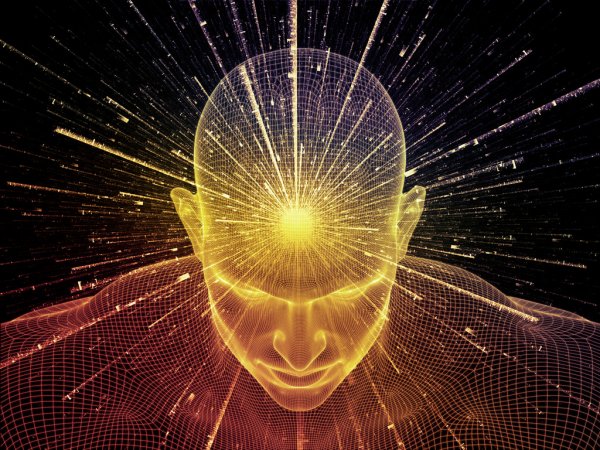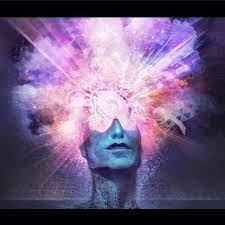
The Human Mind’s Evolutionary Potential
The Mind is so complex that no single tradition of philosophy or science is able to understand it completely. The challenge lies in the fact that we attempt to understand the mind with the use of our own individual mind. Science has given less prominence to subjective experiences in the quest for objective truth. Whether such a truth even exists is questionable. Though objective data, clinical studies and computational modelling of the brain, nervous system and the psyche provides us with a powerful framework to make sense of the mind, it nonetheless cannot show us the complete picture. Training our mind through subjective experience has a direct impact on the functioning of the mind itself. Thus any scientific endeavor that doesn’t leverage the power of subjective experiences to explain the functioning of the mind is missing out on a key element of what it means to have a human mind. Subjective experience doesn’t fit into neat tables and data analytics tools, and yet the reality, that each and every human experiences, is a subjective one. Objectivity is a myth. The mind is subjective, so is cognition. Yet, objectivity is important. In a swirl of chaotic subjectivity, an objective approach gives us a place to stand, so that we may make meaningful observations. Getting caught up in one camp or another doesn’t do us any good. To understand the mind, we must learn to marry objectivity and subjectivity. Though contradictions might be rife, no understanding of the mind can ever be complete. Yet we must not shy away from a multi-pronged approach to understanding the mind. At this stage, some of you might be thinking – why even try to understand the mind? Why not just let it be the way it is, and go on with our life as usual? The answer lies in the fact that the mind is dynamic. With every incremental understanding of the mind, our experience is altered.
We cannot speak of the mind without speaking about language. Through language, we have created worlds. Worlds that we share and give us meaning. To define what I mean by ‘worlds’, I will use Karl Popper’s model on the mind-body problem. These are the physical universe (world 1), human subjective consciousness (world 2) and the products of the human mind (world 3). He defined products of the human mind as names, concepts, theories, and myths. These products, though non-physical, are embodied into world1. The physical world is given meaning and purpose through the symbols of world 3. Additionally, world 3 shapes the capacity and expression of human subjective consciousness. The material on which we build our individual worlds, stories and myths is sourced from the collective world 3.
 The creation of symbols and myths which has resulted in the possibility for a shared identity that is not bound by one’s geo-spatial location. This has created the opportunity for ever larger groups of humans to trust and cooperate with each other. Human societies have since evolved with ever greater complexity. This ability to have a shared identity that stores information, wisdom & insight across generations has enhanced our cognitive capabilities. Every few generations, the stories increase in sophistication allowing us to keep evolving culturally at a rapid pace. Complex and sophisticated social systems allow individuals to specialize. Specialized experts bring that much more value to our shared worlds. This in turn expands knowledge and thus cognitive capabilities across the board. Societies which allow for cultural evolution are a force multiplier for the individual’s cognitive abilities. This is primarily because the material required to construct our individual cognitive capabilities is not left to chance. It is outsourced to the collective ‘mind’. Thus, through stories, humans could not only collaborate with larger and larger groups, but also with their ancestors. This has been greatly accelerated by the written word. An elder (expert) can transfer his/ her life teachings on to future generations, who could benefit from this lifetime of knowledge, condensed in a book (or other mediums).
The creation of symbols and myths which has resulted in the possibility for a shared identity that is not bound by one’s geo-spatial location. This has created the opportunity for ever larger groups of humans to trust and cooperate with each other. Human societies have since evolved with ever greater complexity. This ability to have a shared identity that stores information, wisdom & insight across generations has enhanced our cognitive capabilities. Every few generations, the stories increase in sophistication allowing us to keep evolving culturally at a rapid pace. Complex and sophisticated social systems allow individuals to specialize. Specialized experts bring that much more value to our shared worlds. This in turn expands knowledge and thus cognitive capabilities across the board. Societies which allow for cultural evolution are a force multiplier for the individual’s cognitive abilities. This is primarily because the material required to construct our individual cognitive capabilities is not left to chance. It is outsourced to the collective ‘mind’. Thus, through stories, humans could not only collaborate with larger and larger groups, but also with their ancestors. This has been greatly accelerated by the written word. An elder (expert) can transfer his/ her life teachings on to future generations, who could benefit from this lifetime of knowledge, condensed in a book (or other mediums).
To quote a saying that is inspired by Archimedes:
“Give me a lever long enough, and a place to stand; and I shall move the world (Earth).”
Language is precisely such a lever. Through language, we have leveraged the collection of humanity (past & present) to move/ change the ‘world’. The global world of today is a declaration that this form of leverage is finally coming of age.
 Language makes it easier for us to neuronally store information. Through the development of words, many of our past incidents, stored as memories, could be linked together. Words provide a way to access our memories through much faster routes. John McCrone argues that many cognitive systems like memory retrieval, self consciousness, emotional processing, and identity creation are all aided by the use of language. For instance, language enabled efficient memory storage and retrieval, which in turn gave us a sense of time, and thus a sense of continuity. This sense of continuity is the bedrock of our personal identity and self-consciousness. The biological evolution of our brain, allowed for the creation of language, which in turn has drastically altered neuronal structures in the brain. Yet, is language based thought the most important aspect of the mind? Descartes would vibe with that, his popular saying “I think therefore I am” is testament to this worldview.
Language makes it easier for us to neuronally store information. Through the development of words, many of our past incidents, stored as memories, could be linked together. Words provide a way to access our memories through much faster routes. John McCrone argues that many cognitive systems like memory retrieval, self consciousness, emotional processing, and identity creation are all aided by the use of language. For instance, language enabled efficient memory storage and retrieval, which in turn gave us a sense of time, and thus a sense of continuity. This sense of continuity is the bedrock of our personal identity and self-consciousness. The biological evolution of our brain, allowed for the creation of language, which in turn has drastically altered neuronal structures in the brain. Yet, is language based thought the most important aspect of the mind? Descartes would vibe with that, his popular saying “I think therefore I am” is testament to this worldview.
Yet the ancient yogis had a different perspective on the mind. They saw the mind as a projector. Something that projects and creates reality. Language is definitely its strongest enabler, but awareness precedes thought and language. Once the superstructure of language, stories and myths have been integrated into the individual mind, the mind loses access to forms of consciousness devoid of language based thought. Yet, there are ways to re-access these states of awareness (meditation, yoga, etc.). To do that, we must fine-tune our attentional capabilities. To be able to momentarily halt the stream of thoughts coursing through our mind. Why is this important? I argue that it is simply a way of harnessing our complete evolutionary potential.
To explain this, I shall borrow a concept from a cognitive biologist, Ladislav Kovac, called ratcheting. Biological evolution takes place in stages. Each stage builds its structure upon the previous stages. A particular stage in evolution that was essential to our survival a few thousand years ago, still exists, albeit overshadowed by later evolutionary stages that have ratcheted over and above the previous stage. Thus, similarly our pre-language brain structures and forms of experience are still accessible. However they are more and more difficult to grasp at. To understand the Mind slightly better than we currently do, we must attempt to understand it through language based cognition and experience and also non-language based cognition/ experience. Language provides us with a structure to explain non-language states of awareness. Each state of awareness enriches the other, providing new perspectives, but more importantly a mind that can alternate between the two is employing the full potential of its evolutionary history.
